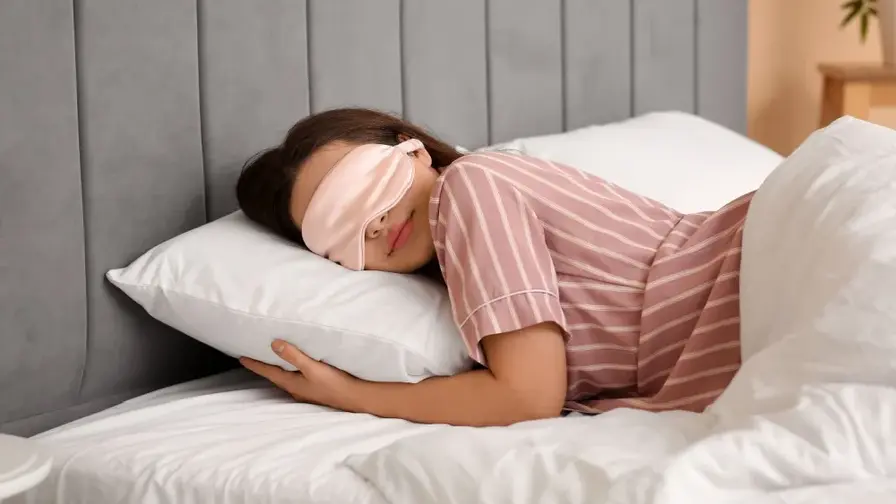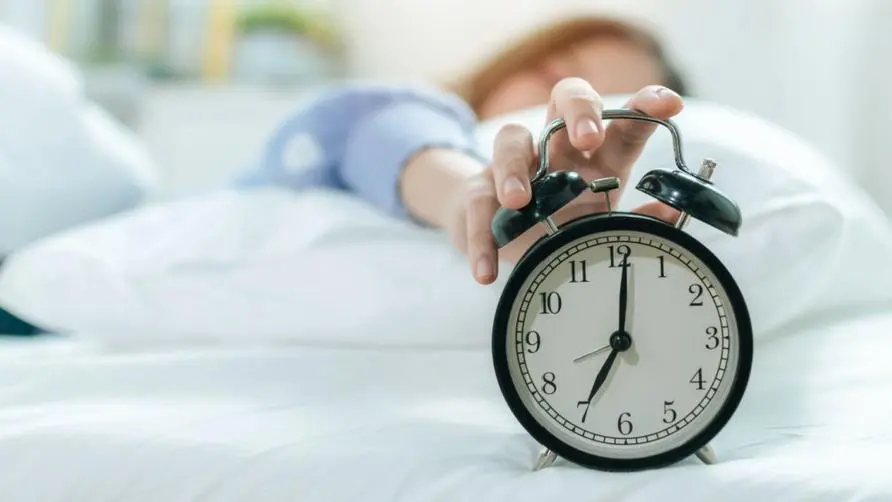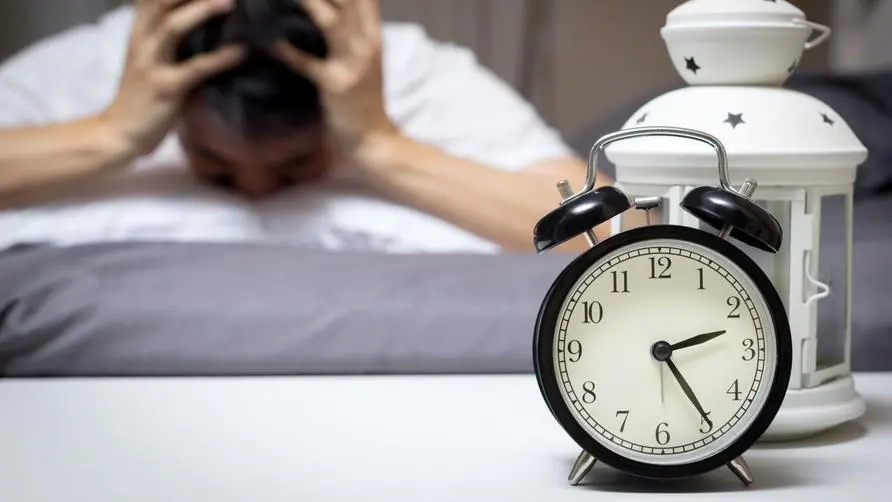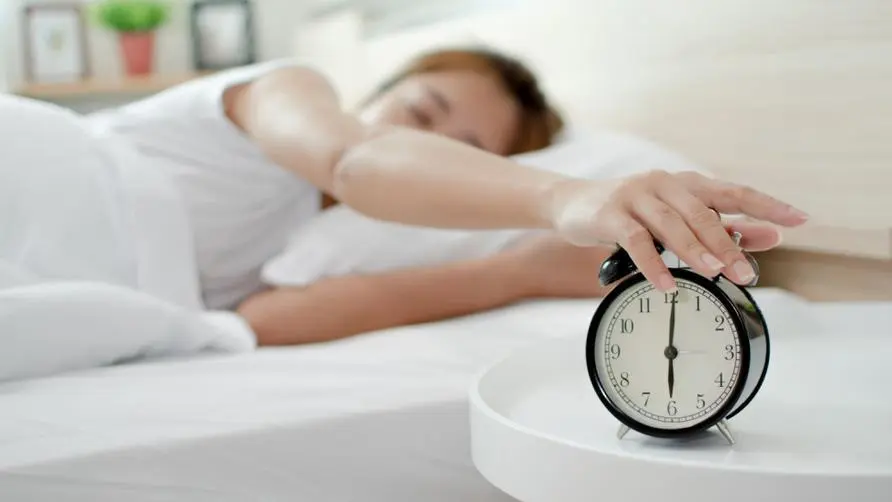Finally a reason to stay in bed during the holidays! A study of 90,000 people confirmed that sleeping on weekends reduces the risk of heart disease by nearly 20%

The high-pressure nine-to-five work style makes modern people prone to sleep deprivation or insomnia. Should office workers use their weekend leisure time to catch up on sleep? Previously, academic circles believed that catching up on sleep on weekends might disrupt the biological clock and affect the body’s circadian rhythm. Now, the European Society of Cardiology (ESC) has published a study that points out that catching up on sleep for at least one hour on holidays may have unexpected benefits for heart health.
Finally a reason to stay in bed during the holidays? Study: Sleeping on weekends reduces risk of heart disease by nearly 20%
A research team led by Fuwai Hospital of the Chinese Academy of Medical Sciences collected health data from 90,903 subjects through the UK Biobank. The average age was 55.9 years old; 21.8% of them were defined as sleep deprivation (sleep less than 7 hours), others occasionally suffer from sleep deprivation. Heart disease is defined as coronary artery disease, atrial fibrillation, heart failure and stroke.
In order to evaluate the link between “weekend compensatory sleep” and heart disease, the research team used accelerometers to record the sleep data of the subjects and divided them into four groups according to their sleep habits: The first group had the least sleep compensation time and was -16.05 to -0.26 hours (that is, less sleep time); the second group was -0.26 to 0.45 hours; the third group was 0.45 to 1.28 hours, and the fourth group had the most compensatory sleep, from 1.28 to 16.06 hours. The above sleep time is the total of 2 days of holidays.
The total number of people in the four major groups is roughly similar (the first to fourth groups have 22,475, 22,901, 22,692, and 22,695 people respectively). The research team conducted long-term follow-up for an average of about 13.8 years and found that compared with the first group of subjects, the risk of heart disease in the fourth group of subjects was 19.1% lower, and no gender difference was found.
More benefits for sleep-deprived people? Holiday catch-up sleep should not exceed “X hours” per day
It is worth mentioning that for those who have sleep deprivation problems, the risk of heart disease has a further downward trend (19.9%), but the difference is not significant compared with those who do not have sleep problems. Study author Song Yanjun said that the results of the study show that compensatory sleep on weekends is associated with a reduced risk of heart disease; the association may be stronger for those who often do not get enough sleep during the workday.
This study has the advantage of a sufficient sample size, and is also the first trial to prove that weekend sleep supplements are related to the prevention of heart disease. However, Song Yanjun also reminded that taking too long to catch up on sleep during holidays can easily lead to negative consequences. Most studies have pointed out that the ideal range is to increase holiday sleep by 1-2 hours per day; however, if it exceeds 2 hours, it may disrupt sleep rhythm and affect sleep quality in the following week.
More than just reducing heart disease risk? Korean research shows that catching up on sleep during holidays can prevent “fatty liver”
In addition to having the potential to reduce heart disease, catching up on holiday sleep can also have a miraculous effect in preventing “fatty liver”? The Catholic Kwantung University in South Korea published a study in 2022, dividing 11,714 subjects into three groups: the first group, those who slept less than 7 hours a day and did not catch up on holidays; the second group, those who slept less than 7 hours a day Those who sleep more than 7 hours a day and have extra sleep on holidays, and the third group, those who sleep more than 7 hours a day.
After comparing the liver function, obesity and fatty liver risk values of the three groups of horses, the following findings were obtained: Compared with the first group, the risk of fatty liver in the third group was reduced by 27%, the risk of abnormal liver function was reduced by 25%, and the probability of obesity was reduced by 23%; in addition, compared with the first group, the risk of fatty liver in the second group was reduced by 20%, the risk of abnormal liver function was reduced by 24%, and the probability of obesity was reduced by 13%.
Study author Yongsang Seo said that there is a link between non-alcoholic fatty liver disease and reduced sleep time. The possible reason is that sleep fluctuations lead to changes in the “hypothalamic-pituitary-adrenal axis” in the brain, which causes cortisol, pro-inflammatory cytokines and Norepinephrine imbalance will lead to fat accumulation and a significant increase in the risk of fatty liver. Getting enough sleep or catching up on sleep during holidays may help avoid hormonal disorders in the body.
Catch up on sleep with revenge may be bad for your health! Expert: Easily gain weight and increase psychological stress
There may seem to be many benefits to catching up on sleep during the holidays, but the behavior of “revengeful sleeping” that spans too long a sleep span may still cause harm. Sherrie Neustein, an American pediatrician and sleep expert, gives an example: “Suppose the sleep time on weekdays is from 23:00 to 7:00, and the sleep midpoint is 3:00. The holiday sleep time is assumed to be from 1:00 to 9:00, and the sleep midpoint is 5:00. The greater the difference between the two sleep midpoints, the higher the risk of obesity, body inflammation, diabetes and psychological stress!”
Neustein said that catching up on holiday sleep may help make up for “sleep debt,” but if you deliberately stay up late or stay awake for several days, it may take several nights of normal sleep to restore normal circadian rhythms. Therefore, going to bed early on weekends can fundamentally solve the problem of sleep debt and avoid disturbing the biological clock. If you feel exhausted during the holiday, it is recommended to take a 20-30 minute nap 1-2 hours after lunch to help maintain your energy for the day and still fall asleep on time at night.
Source:
Catching up on sleep on weekends may lower heart disease risk by up to 20%
Weekend catch-up sleep is associated with the alleviation of non-alcoholic fatty liver disease
Further reading:





